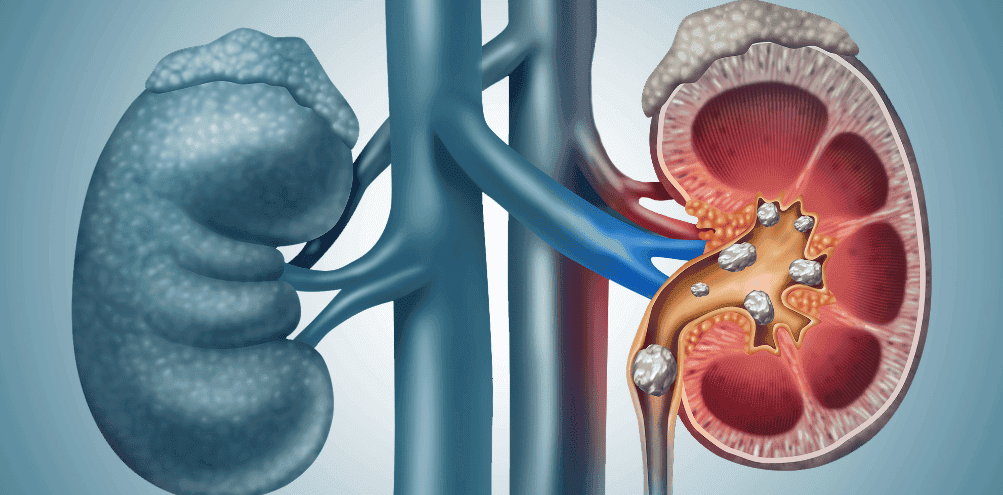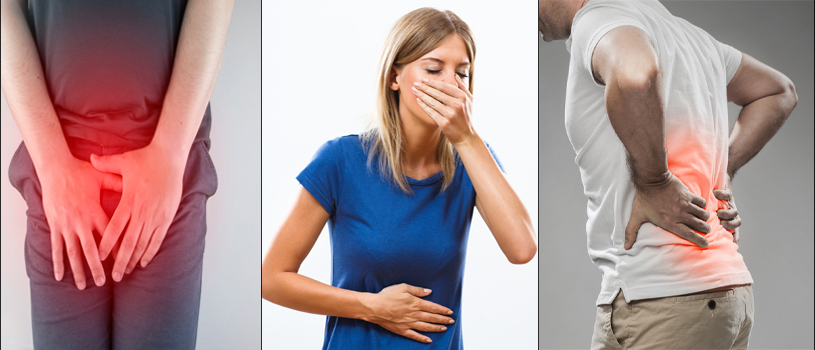Ever felt a sensation like something is moving back and forth in the kidney, belly and urinary area? Well, if you did, then what was your first perception about it? Gas? Acidity?
Well, every time is the same time. The movement of bloated air and acidity is different than the movement of kidney stones. Kidney stones are the hard formations of the accumulated wastes and toxins in the body. However, uric acid and calcium build-up are the most common forms of kidney stones.
The kidney stones’ size can be a size of mustard and as big as a tennis ball. The leading cause of kidney stone build-up is the excessive presence of minerals and salts in the urine. The possible causes of kidney stones other than waste build-up are dehydration, concentrated urine, and frequent urinary tract.
Now let us discuss the symptoms, small kidney stones generally don’t cause any symptoms and may get released through the urine after practicing specific remedies such as drinking ACV (Apple Cider Vinegar) juice, Lemon juice, Pomegranate juice, etc. depending on the medical history of the patient.
The disease prevalence of kidney stones is that about one in a group of eleven people is likely to get affected by kidney stones. It is more common in men, obese, and diabetics. You may not sense changes that may occur in the body when the stones are small, but as they grow gradually, the body will start indicating the following symptoms:
- Pain in the lower back
- Painful urination
- Frequent but reduced urine output
- Presence of blood traces in the urine
- The awful smell of the urine passed
- Nausea & vomiting
Pain in the lower back:
Many changes occur in the body during kidney stones’ medical condition, and back pain is common. However, it is equally important to understand the difference between back pain and kidney pain. Back pain will feel like muscle pain, while kidney pain will be deep and sour. Kidney pain will feel like being stabbed from inside.
Kidney pain is also known as renal colic and is one of the most severe pains that anyone can imagine. It is not valid to compare kidney pain with childbirth pain as both have different complications and medical conditions, but certainly, people do.
The affected person can feel the movement of stones during this pain will know exactly where the stone is going. If the pain is coming from the ureter, then the movement would be like sliding down from the spine’s sides.

Painful urination:
It is one of the common symptoms of kidney disease and creates an awful pain while urinating. Once the stone reaches a point of a junction where ureter and bladder connect, it creates pain during urination. It may make you feel burning while passing the urine. At times when the patient is not aware of the kidney stone’s presence, the pain may go misinterpreted as for UTI or general urinary abnormality.
Frequent but reduced urine output:
During kidney stones, the urine output decreases, and the need to urinate increases. It happens because of the obstruction caused by stones present in the bladder. The pain would feel sharp and burning. It can make you urinate less at a time but will make you go frequently.
Blood in the urine:
It is one of the most significant signs of kidney stones. It is a symptom that generally occurs when the stones grow large in size and scars the kidney membrane’s lining.
The awful smell of the urine passed:
It is also one of the most common symptoms found in kidney diseases. The accumulated urine often causes awful smell when passed finally. It may also look foamy because of associated kidney disease.
Nausea & Vomiting:
Kidney stones often create an uncomfortable environment in the body and make you feel uneasy. It may make you feel to vomit repeatedly and unconscious most of the time. The reason behind all of this is that the kidneys share a connection with the GI tract, and if the kidneys get diseased, it will affect the associated organs too.
Kidney stones have been a cause for concern for many. There can be enormous causes of kidney stones that are specified in this reading.

